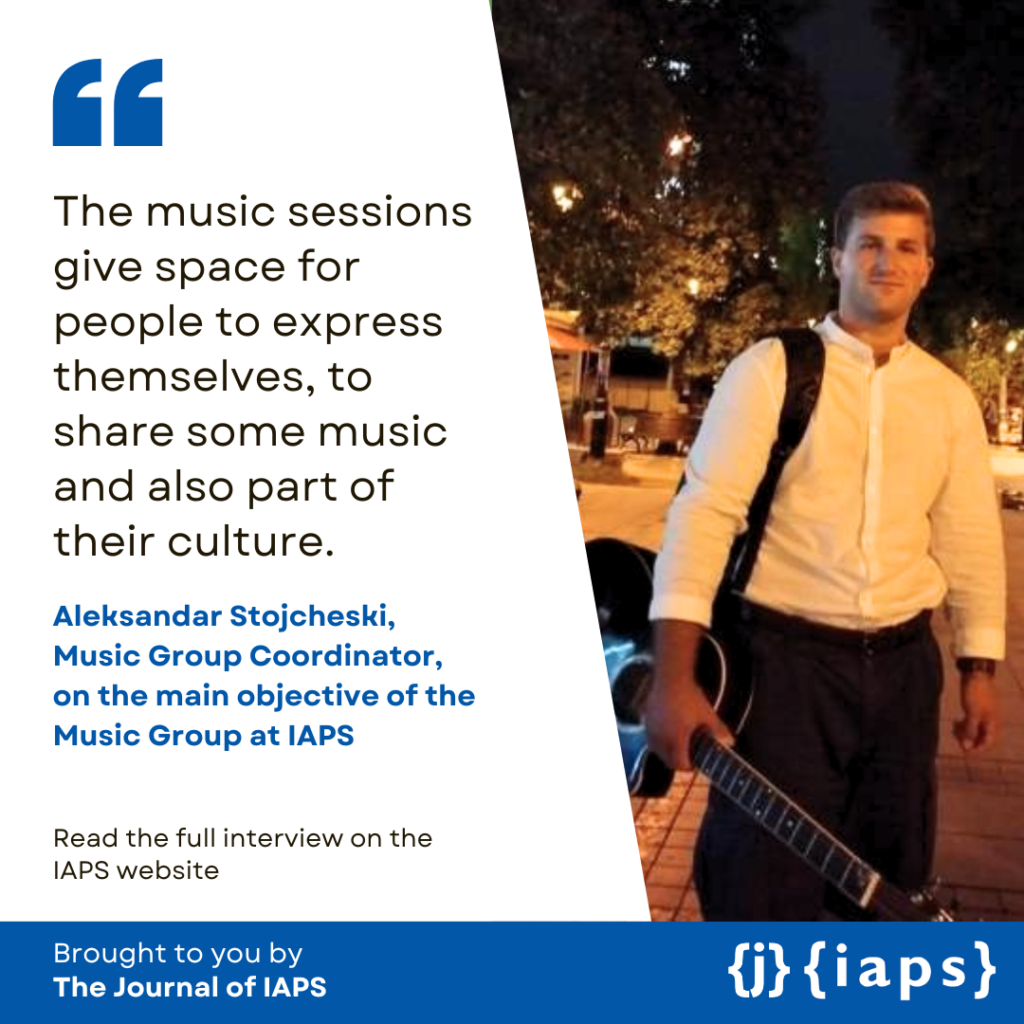Interviewer: Fabiola Cañete Leyva, Benemérita Universidad Autónoma de Puebla, Mexico
Music and physics have always been intertwined. That is the main motivation behind the Music Sessions led by Aleksandar Stojcheski at IAPS.
For the next in a series of jIAPS interviews, we feature a conversation with Aleksandar where we discuss the objectives of this initiative.
You can listen to the New Year’s song or the 35th Anniversary’s song produced by the Music Group at IAPS!

‘Hello, Aleksandar. Can you share with us what you are studying and where?
Hello. I’m currently studying for my undergraduate degree. I’m in my third year and my major is physics. I study at the Faculty of Natural Sciences and Mathematics in Skopje, North Macedonia. My intentions for future studies are in the field of fusion and nuclear energy.
How did this initiative begin?
Well, music has always been there. It’s not just something that I started to do recently. Listening to music has always been a huge part of my life.
I started playing the guitar because my father used to play and he taught me. That’s how I started with the acoustic guitar. Then, you know, with time, after practicing more I decided to get myself an electric guitar. Although, my first wish was to play the drums, you know? And that wish remained. So much that several months ago I finally got my drum set. I have always loved music and instruments are a big part of my life. I have plans for future instruments. I would like to play a little bit of everything. It is a passion I always carry with me, even when I go to physics events.
Actually, that is how all this initiative began. It was very interesting how it happened.
Last year I went as a delegate to the EPS forum in Paris. It was my first participation as an IAPS member and it was great. I met incredible people: the president, the business committee, everyone. We had a great time and I learned a lot.
At the end of the event, many of us remained in Paris for one or two days more to enjoy the city. Some of us gathered to walk around and we ended up visiting Montmartre, a place full of culture. There were some theaters, very nice cafes and of course, music.
I remember there was a street musician who played the guitar and he really interacted with the audience. All of us ended up singing together and, at one point I even joined the stage. It was really an amazing experience.
Afterwards, while talking with Ruhi —the IAPS president at that time— I said, why not try to do something like this in IAPS? She was very excited about the idea. And after returning to my country we really talked about it. I gave some proposals, she also gave some ideas and that is how it all happened. It was very spontaneous.
What is the main objective of the Music Group at IAPS?
Well, music always brings people together. So the idea is to recreate, in some way, the experience we all had in Paris. The music sessions give space for people to express themselves, to share some music and also part of their culture. I was really honored when people entered the first couple of sessions and started to play their instruments.
Slowly, some ideas came up. During sessions I started to think about what more we could do and that is how the idea of making a song for the 35th anniversary of IAPS was born. We thought that it was a great opportunity to come together and produce something.
The coolest part of being an international community is that you don’t just gather in a room and play. Being all in different parts of the world, we had to, sort of, make it like a puzzle. Everyone played individually and in production all the pieces came together. The collaboration was amazing.
How many participants are there in the Music Group?
On average, about 10 people. There is always a different number of people in each session, it depends on their availability. I usually try to post the date early so that everyone can see it. Anyone can join. We actually had new members the last time.
Being a group formed by physics students, do you think that your approach to music is different from that of the general public?
Maybe. I would say that as a physicist you get inspired in a different way because physics is a science that consists of amazing theories that can influence the way you think about music. For example, there have been people who play the Fibonacci sequence and get inspired by incorporating those mathematical and physical concepts into their music.
Which music genre is addressed by the Music Group?
We don’t approach just one style. There have been sessions where we play traditional songs. Sometimes we play jazzy stuff, like the New Year song we composed. And other times we also go with a classical perspective, like with the anniversary song.
Personally, I love rock music and sometimes I also listen to classical music but I try not to impose my preferences in the music sessions. I am always open to suggestions and I am happy to try new things.
Do you have a role model or an inspiration, like a physics professor with a music background?
Not really, that is not my way of thinking. I don’t have role models. I follow inspiration instead. Music is a great part of my life and I have understood that I need that balance between art and science. When I do music I get inspired by the process.
Finally, what advice would you give to anyone who is thinking of joining the music group or learning to play music?
Well, the main requirement, in a way, is to have a passion for music. The objective is to have fun, to relax a little bit and if something comes out of it, that is fantastic. If someone has a music project that requires collaboration or if someone just wants to learn about other cultures through music, this is the place to do that.
Aleksandar, thank you so much for this interview and for the wonderful work done leading the Music Group at IAPS.’
Find out more about the Music Group Sessions in the #music channel of the IAPS Discord.
